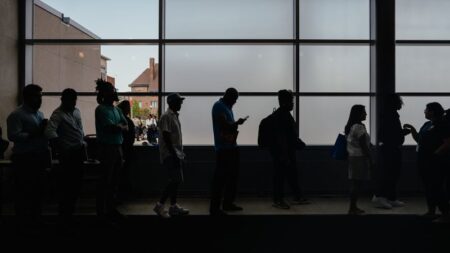In the modern landscape shaped by advances in technology, Artificial Intelligence (AI) has carved out a notable role, influencing various industries. One intriguing personal account comes from Sarah Skidd, a product marketing manager specializing in content creation for tech and startup firms. Her story illustrates a common predicament in the industry: she finds herself earning extra income by correcting content generated by AI systems. This scenario emphasizes a significant shift in the labor market where human oversight is necessary to rectify the pitfalls of AI.
In May, Skidd was approached by a content agency that required urgent help with website copy generated by generative AI for a hospitality client. Contrary to expectations that AI would streamline the content creation process and save costs, the opposite occurred. The AI-produced text was basic and uninspired. Skidd remarked that the copy lacked depth and failed to engage readers, describing it as “very vanilla.” This scenario highlights a crucial concern regarding AI-generated content; while it can save time, the quality of generated text often falls short of human standards.
To illustrate the extent of the problem, Skidd invested approximately 20 hours rewriting the entire copy, charging $100 per hour. The task wasn’t merely about making minor adjustments; it was about a complete overhaul of AI’s inadequate work. Despite the growing reliance of businesses on AI technologies like ChatGPT, Skidd remains optimistic regarding her profession. She believes that skilled writers will continue to find opportunities, asserting that proficiency in the craft will ultimately secure their positions.
Echoing similar experiences, other writers are also discovering lucrative avenues in refining AI-generated text. Skidd mentions that one connection reported that 90% of their work involves fixing AI content missteps, indicating a budding industry niche that has emerged from the reliance on AI. Interestingly, Skidd is not opposed to AI; rather, she views it as a potentially valuable resource for individuals with certain challenges, such as dyslexia, which has impacted her family.
However, the implications surrounding AI integration in businesses are vast and not always beneficial, as demonstrated by another industry professional, Sophie Warner. As a co-owner of Create Designs, a digital marketing agency in Hampshire, Warner has reported an increase in her clients seeking assistance after implementing AI solutions. Many have turned to AI for quick fixes, only to confront emerging problems that require professional intervention.
Warner recalls instances where clients introduced code into their websites based on AI recommendations, leading to failures and potential security vulnerabilities. She cites a particular client who, rather than taking 15 minutes to manually update an event page, sought AI instructions and wound up incurring nearly £360 in costs when their website crashed for three days. This pattern of behavior has led Warner and her team to invest more time educating clients about the consequences of hastily implementing AI-generated suggestions.
Furthermore, insights from Prof. Feng Li, associate dean for research and innovation at Bayes Business School, shed light on the elevated risks associated with AI reliance. Businesses have become overly optimistic about AI capabilities, unaware that these tools can “hallucinate,” generating misleading or irrelevant content. Li emphasizes the requirement for human oversight to mitigate the risks associated with AI implementation, as poor execution can inflict reputational damage and unexpected financial burden on companies.
In Gujarat, India, writer Kashish Barot echoes Warner’s sentiments, finding herself editing AI-written content for clients based in the U.S. She faces challenges as clients often expect instantaneous results, not recognizing the inherent nuances in quality writing and editing. This expectation warps the perception of time required for quality work and highlights the disparity between AI’s capabilities and genuine human creativity.
Warner’s concerns regarding AI’s future capabilities are inseparable from indepth comprehension of brand identity and target audience engagement. While it presents a quick and seemingly cost-effective option for businesses, the generic quality of AI output can inadvertently harm a brand’s reputation, necessitating the irreplaceable value of human expertise in the creative industries.
In sum, as AI continues to evolve and integrate itself into various sectors, the narrative emerging from Skidd, Warner, and Barot advocates the necessity of balancing technological advancement with the irreplaceable essence of human insight and creativity. Generative AI, while a powerful tool, must be wielded judiciously to avoid pitfalls that could detrimentally impact businesses in their quest for growth and efficiency.











